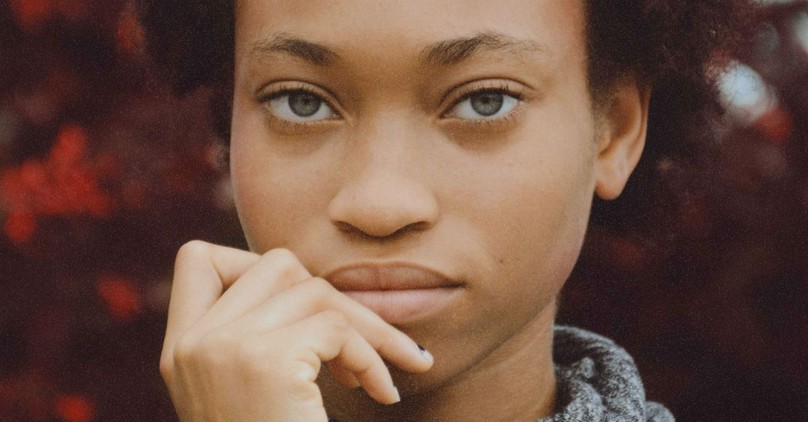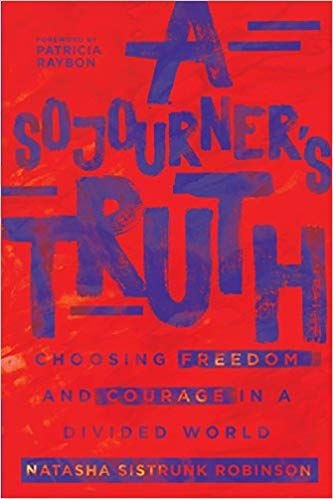
Vulnerability can be dangerous in the same way water is dangerous. Like water, vulnerability can be the source of cleansing and renewal or it can be the source of drowning and death. But there is something else that is more dangerous than taking the risk of vulnerability, and that is silence.
As an African American woman who loves my African American sistas, I have learned that we are often silent about what hurts us the most. Dr. Chanequa Walker-Barnes refers to this epidemic as a “Deadly Silence.” She writes:
“Perhaps nowhere in society is the StrongBlackWoman more ubiquitous than in the Christian church. The church reinforces the mythology of the StrongBlackWoman by silencing, ignoring, and even romanticizing the suffering of Black women. Rather than offering a balm to heal the wounds of Black women who cry out about their pain, the church admonishes them with platitudes such as “God won’t give you any more than you can bear” and “If He brought you to it, He’ll bring you through it.”
Acclaimed Harlem Renaissance writer Zora Neale Hurston was also a black woman acquainted with suffering, and she understood that we, as African Americans, could not be silent about our pain because silence would be the death of us. By swallowing the poison of our pain, we die a slow death, and for black people in America it seems as if nobody notices. As another artist wrote, “The heart dies a slow death, shedding each hope like leaves until one day there are none. No hopes. Nothing remains.”
When We’re Silent About Pain
Knowing the pain, history, violence, and silence that have shaped the African American narrative infuses how I read the Scriptures. I come from a marginalized and oppressed people group that was enslaved for more than three hundred years, so I try to imagine the helplessness and hopelessness that the Hebrew people felt as an entire generation of their boys were thrown into the Nile River. What would be worse: knowing that the actual genocide took place, knowing that people in positions of power in the empire stood by and said nothing, or knowing that nothing would be done about this loss of innocent lives—that justice would not be served? This is a painful narrative that is quite familiar to African Americans. Murder by the state. Silence. Then nothing. The heart dies a slow death. The painful reality of this death emotionally cripples us, and black people have been conditioned to say, “Thank you,” and take our lethal doses with a smile.
Why Pain Must Be Named and Confronted
But I am not without hope. We see from Moses’ story that God hears the cries of the oppressed. God enters our pain, through our suffering, even in the silence. If healing is to come, then this pain must be named and confronted. We cannot look away. With every truth-telling moment, we can better discern what these moments reveal about our history, our authentic selves, our leadership journey, and our hope for a better future. Only then can we challenge each other to join in God’s great work of justice, redemption, and reconciliation. If healing is to come, then this pain must be named and confronted.
How Power Prevents Hearing Other’s Pain
The power and wealth of the Egyptians prevented them from considering the pain that slavery inflicted on the Hebrew people. All the while, the Hebrews were crying out to God for their deliverance. Neither the Egyptians nor the Hebrews knew that one infant’s trip to the water—a trip that could have meant life or death for him—would turn the tide and usher in freedom for an entire people group. This divine hope was made possible through the most unlikely source—the compassion of Pharaoh’s daughter. When she discovered Moses floating in the water, she made a choice to see a human, not just a Hebrew boy.
When We Learn to See Differently
Like Pharaoh’s daughter, our healing from a sin-sick, power-driven, money-hungry, and racialized culture will come only when we learn to see differently. None of us really knows how one empathetic gesture, one listening ear, one kind word spoken, or one loving act can change the trajectory of a person’s life. With her actions Pharaoh’s daughter made it possible for Moses to grow into manhood, in which he eventually learned that God always sets before us choices of life or death, blessings or curses. As Moses later instructed the Israelites:
This day I call the heavens and the earth as witnesses against you that I have set before you life and death, blessings and curses. Now choose life, so that you and your children may live and that you may love the Lord your God, listen to his voice, and hold fast to him. (Deuteronomy 30:19-20)
Pharaoh’s daughter reminds us that with every word and act, we choose either life or death for ourselves and for others.
Choosing Life for Ourselves and for Others
Just as the physical act of Moses’ mother placing him into the water and the physical act of Pharaoh’s daughter drawing him out of it express their choices, our physical actions reveal the internal condition of our souls and whether or not we are truly responding to God. Choosing life means participating in God’s redemptive work as he transforms families, reshapes communities, and converts nations. Whenever we do the hard or courageous thing in spite of our lack of understanding, our familial upbringing, our own pain, or difficult circumstances, we are choosing life.
*Taken from A Sojourner’s Truth by Natasha Sistrunk Robinson. Copyright (c) 2018 by Natasha Sistrunk Robinson. Published by InterVarsity Press, Downers Grove, IL. www.ivpress.com

Photo Credit: Unsplash/Prince Akachi








